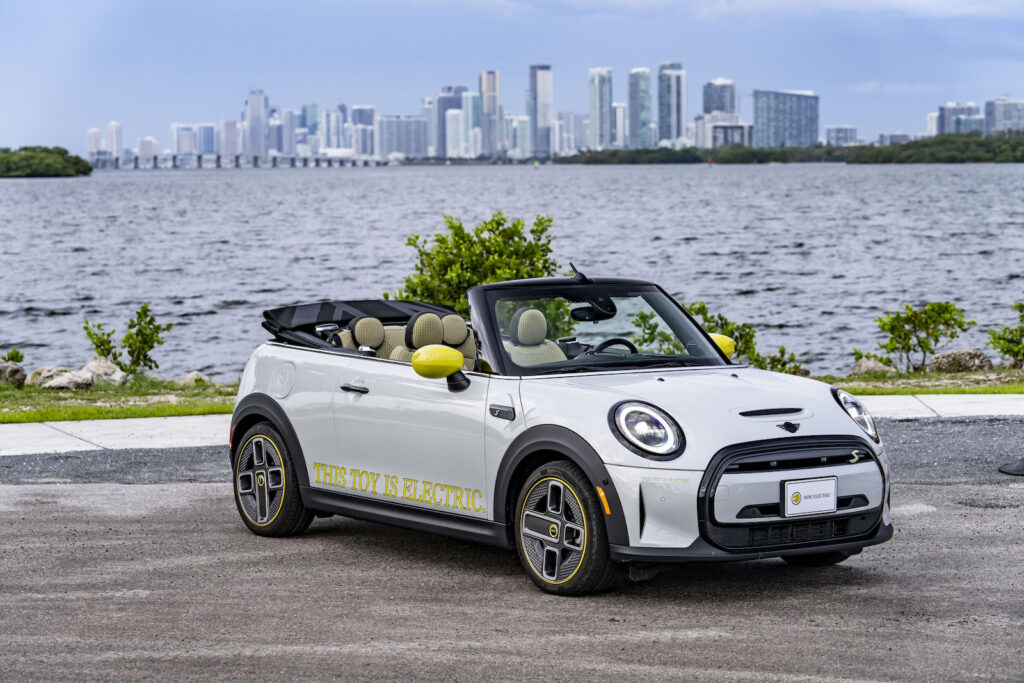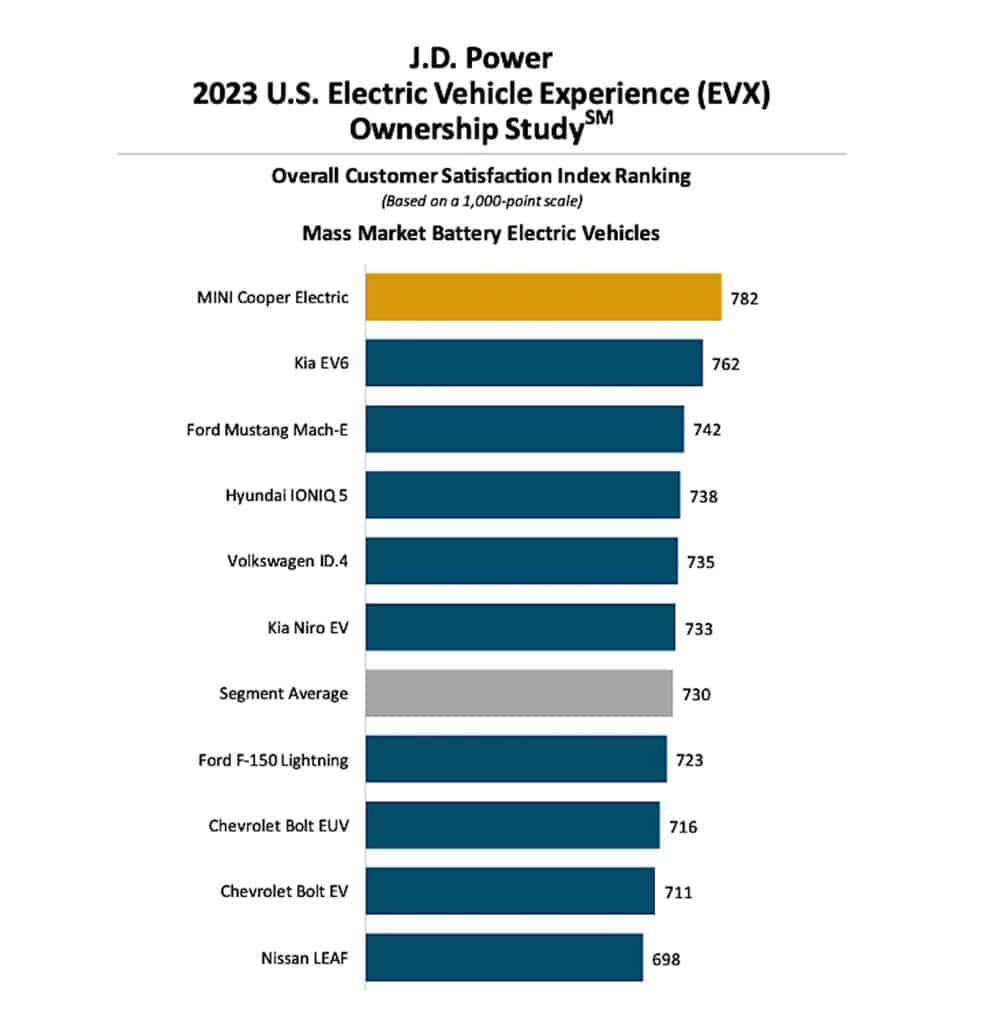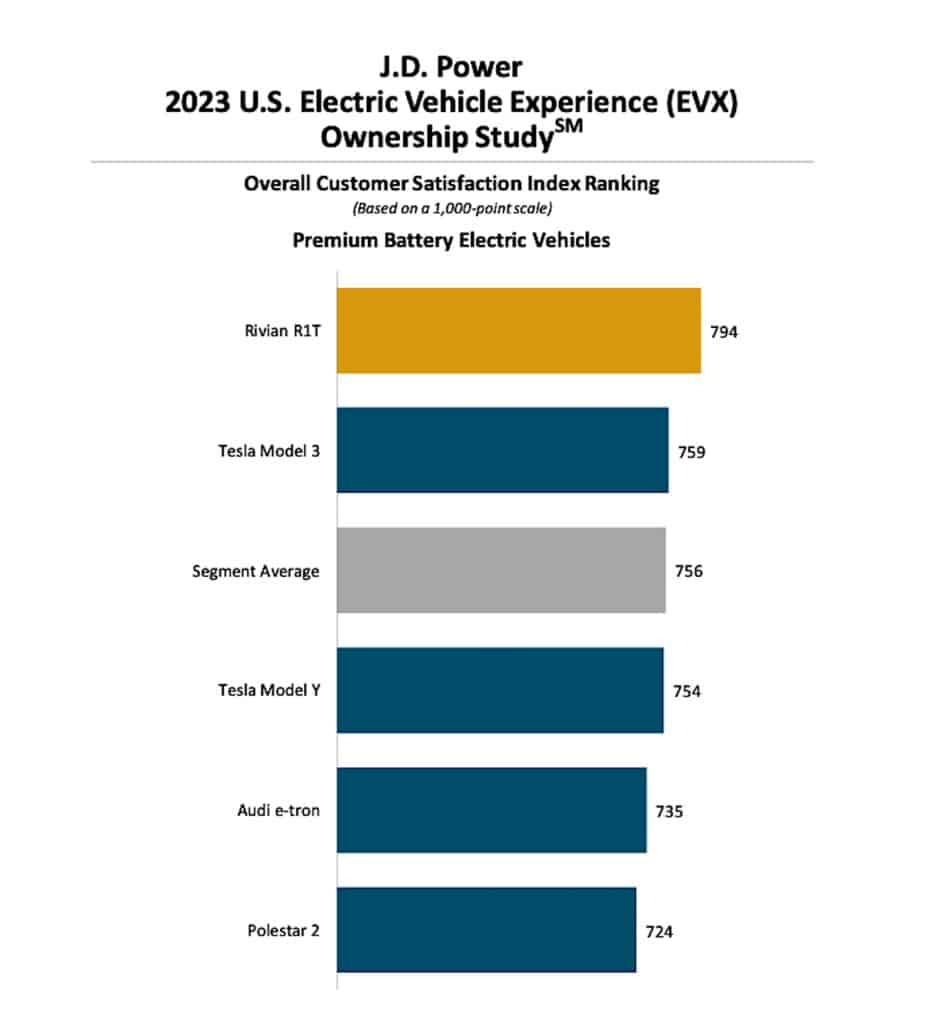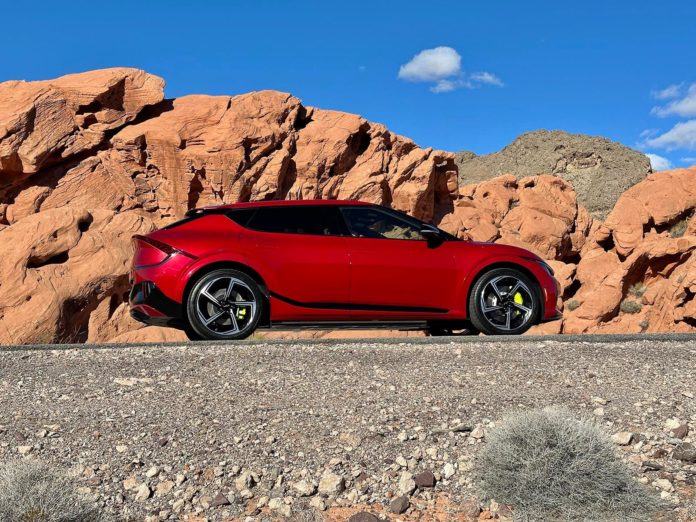Forget range and charger anxiety. As more mainstream buyers enter the EV market they’re focusing on the sort of factors that traditionally have mattered to motorists, like styling and quality, according to the latest annual study of EV owners by J.D. Power.
And owner satisfaction is “getting a jolt,” the Electric Vehicle Experience, or EVX, report reveals. In what is likely to take many manufacturers — and owners — by surprise, Rivian was the highest-ranked brand overall, while also leading the luxury EV segment. Mini, which offers just one relatively low-volume battery-electric vehicle, was the top-scoring brand in the mainstream EV segment.
“The electric vehicle landscape is changing quickly, and newer models are bringing in more mainstream, first-time EV buyers,” said Brent Gruber, executive director of the EV practice at J.D. Power. “Recent vehicle launches from both new brands and traditional automakers have had a profound effect on what factors are most important in the ownership experience. Today’s EV owners are looking for quality, reliability, driving enjoyment, safety and technology features.”
As EV sales accelerate, buyers change
The EV share of the U.S. new vehicle market has accelerated rapidly during the last three years, going from less than 1% in 2019 to more than 5% in 2022. Analysts expect sales and share to further accelerate as more EV models debut. TheDetroitBureau.com counted barely 15 all-electric models, including both long- and short-range models, at the end of 2021. A year later there were nearly 50, just among those EVs delivering at least 200 miles per charge. As many as two dozen more are expected to debut in 2023.

With more products in more segments to choose from, 85% of those who purchased an EV in 2022 were first-time buyers, up from 74% just the year before. And Power forecasts an even higher number this year.
Repeat buyers generally tend to be happier with their EVs than new purchases — except in the category of quality and reliability. That may reflect the problems that veteran EV owners had grown accustomed to in earlier years.
Likes and dislikes
Among first-time buyers of mass market EVs, lower operating costs, tax credits and other incentives were the primary reason for purchase, the EVX reveals, while driving performance was the biggest purchase factor for those buying a premium EV.
On the flip side, premium EV buyers complained most about squeaks and rattles.
Mainstream customers griped most about faulty infotainment systems. That’s more in line with what other Power surveys, including the Initial Quality Study and Vehicle Dependability Study have found among all American motorists, whatever vehicle they drive.
“First-time EV buyers who are more mainstream will compare their EV’s build quality to what they know about gas-powered vehicles,” said Gruber.

Public charging
Perhaps surprisingly, premium EV buyers were relatively satisfied with the availability of public charging, giving it a score of 589 out of a possible 1,000 points. Mainstream customers were far less pleased, giving public charging a weak score of 341.
That, at least, partly reflects the influence of Tesla which competes solely in the premium sector. Other studies have found widespread satisfaction among owners with Tesla’s Supercharger network. In contrast, there have numerous reports about other public charging networks, such as those operated by EVgo and Electrify America, owners frequently complaining about slow or non-functioning chargers.
“The EV marketplace is dynamic and the important factors that manufacturers need to watch will vary based on their history and experience,” Gruber said.
Top models
Despite their concerns, Rivian owners gave top rank to the EV startup’s R1T model, the pickup scoring a strong 794 points. That was the highest scoring vehicle in the premium segment, besting the second-ranked Tesla Model 3 at 759.
The Mini Cooper Electric — despite getting little more than 100 miles per charge, was number one among mainstream EVs at 782 points. The Kia EV6 came in second at 762, with the Ford Mach-E ranked third at 742.
Rivian’s strong showing was significant in several ways. It was not only the top-ranked EV in the latest Power EVX, but it was also tops among the new wave of all-electric pickups. By comparison, the Ford F-150 Lightning scored just 723 points.

EV pickups
The electric truck segment is expected to grow rapidly over the next several years. Among pickups, GMC will add both a Hummer SUV and a Sierra EV pickup. Chevrolet is getting ready to launch production of the Silverado EV. And, among others, the Ram 1500 Rev is expected to debut sometime in 2024.
The 2023 EVX touched on a controversial topic: EV towing. But the findings contrast what many news reports have indicated, Power finding general satisfaction with the range owners experienced when attaching a trailer to their EVs.
“Interestingly, satisfaction is higher among EV truck owners who have used their vehicle for towing (779) than among owners who have not towed (753),” a summary of the study noted. But the report also stressed that automakers can increase satisfaction by providing owners with valid expectations, “proactively communicat(ing) the effect that towing has on range.”
Revised methodology
This is the third year Power has conducted the Electric Vehicle Experience study and, for 2023, it revised its methodology to focus specifically on the first year of ownership.
Just over 7,000 EV owners were polled on 10 different factors: accuracy of stated battery range; availability of public charging stations; battery range; cost of ownership; driving enjoyment; ease of charging at home; interior and exterior styling; safety and technology features; service experience; and vehicle quality and reliability.

